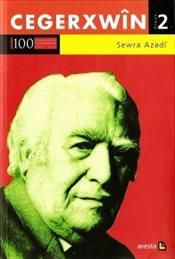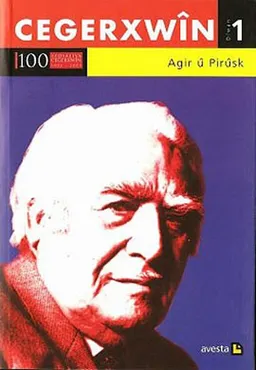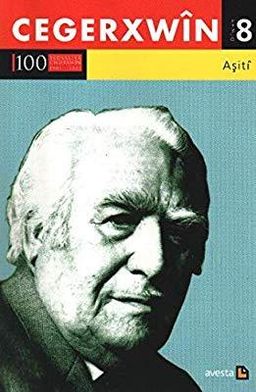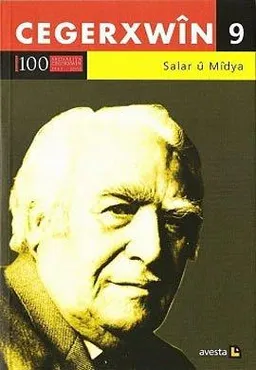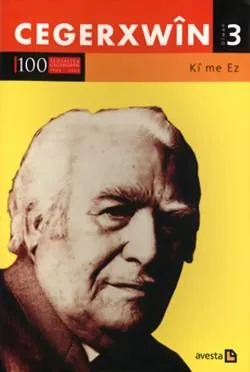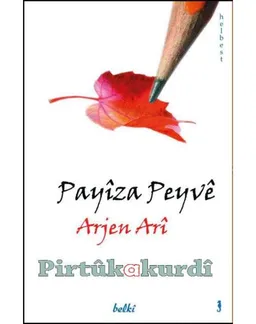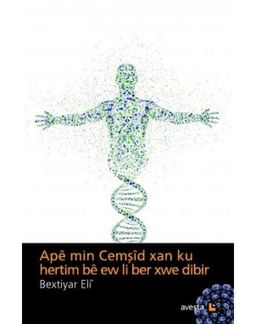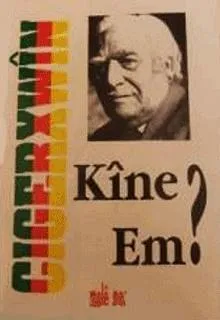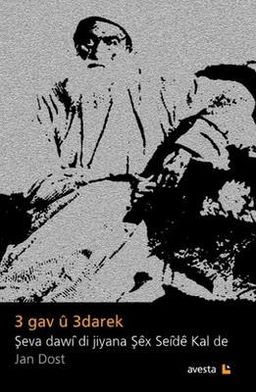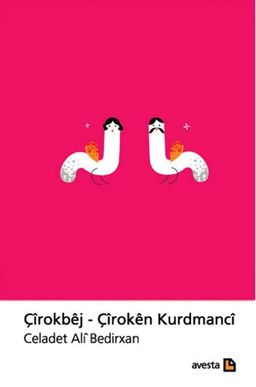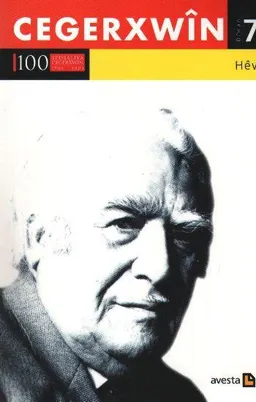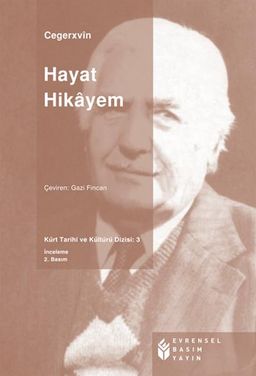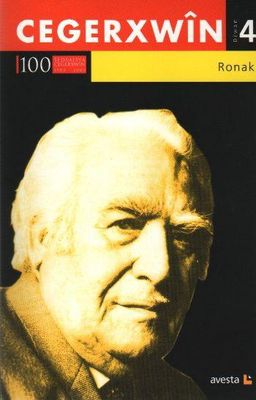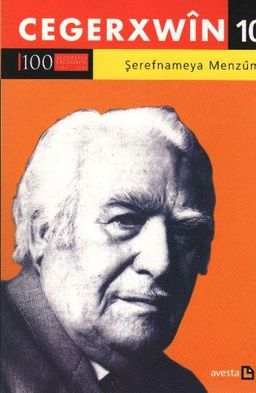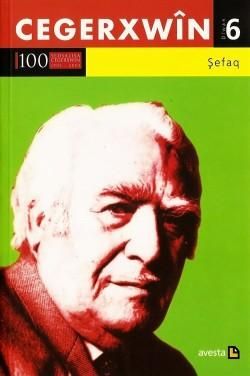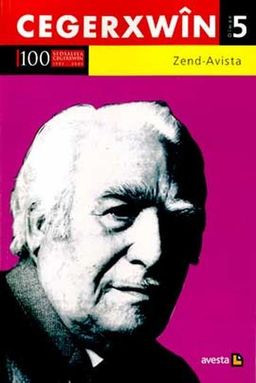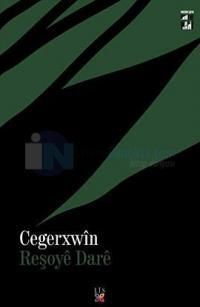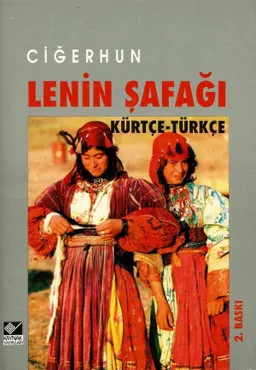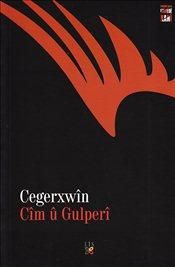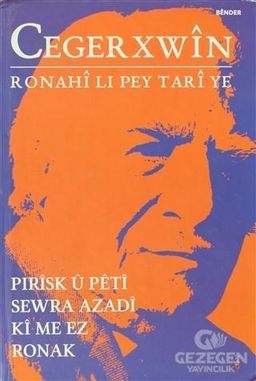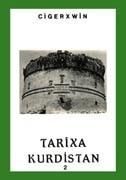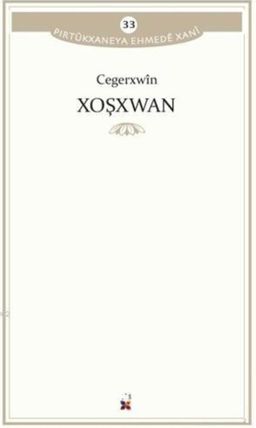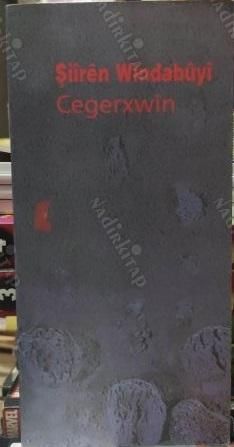About Hêvî
Hêvî subject, statistics, prices and more here.About
Têma welêt, tema kurd û Kurdistanê, têma şorişê û serxwebûna gelê me, pirsa xwendinê û peşketinê, neyariya û bebextiya dijminê gel, pirsa dostiya û biratiya hemû gelê cînar û têma înternasîonalîzmê Cegerxwîn her dem dike binyata helbestêd xwe. Ev e mezinaya Cegerxwîn û bîr û baweriya wî. Xên ji helbestên watanperwariyê û şorişgiriyê, Cegerxwîn şayîrekî lîrîk e, şayîrê hub û hezkirinê ye. Ew nemir e bona gelê xwe û ez bawer im, wekî wê ew roj bê, çaxê ko helbestê Cegerxwînê delal nek tenê kurdê aza wê bixunin, lê usa jî xwendevanê diniyalikê wê bi tercima zimanê xwe ezberê bêjin û pê kêfxweş bibin, çimkî biniyata helbestên Cegerxwîn ew delaliya emir e, delaliya jiyîna mirov e. -Ordîxanê Celîl-
Author: Cegerxwîn
Estimated Reading Time: 6 hrs. 17 min.Page Number: 222Publication Date: January 2011Publisher: Avesta YayınlarıISBN: 9789758637584Country: TürkiyeLanguage: TürkçeFormat: Karton kapak
Book Statistics
Reader Profile of the Book
Kadın% 37.9
Erkek% 62.1
0-12 Yaş
13-17 Yaş
18-24 Yaş
25-34 Yaş
35-44 Yaş
45-54 Yaş
55-64 Yaş
65+ Yaş
About the Author
CegerxwînYazar · 20 books
This text has been automatically translated from Turkish. Show Original
Cigerxwin was born as Şehmus Hasan in 1903 in Hisar Town (Hesarê) in Gercüş district of Mardin (now Batman). As a result of the start of World War I in 1914, he and his family immigrated to the city of Amude in Syria. Later, he graduated from the Faculty of Theology in this country in 1921 and served as a religious official.
Cegerxwîn moved to Qamishli in 1946 and took part in active politics there. In the same year, he was appointed head of the political structure called Civata Azadî û Yekîtiya Kurd (Freedom Assembly and Kurdish Union). He became a member of the Syrian Communist Party in 1948. Six years later, he declared his candidacy for parliament from this party in order to enter the Syrian Parliament. He left his party in 1957 and founded the Syrian Kurdish Democracy Party together with people from the Azadi (Freedom) organization he had previously founded. He was arrested in Damascus in 1963 for his political views.
He went to Northern Iraq in 1969 and supported the uprising of Mustafa Barzani there. In 1973, he went to Lebanon and published his poetry collections, Kîne Em? He published (Who are we?). In 1976, he secretly went to Syria and spent three years preparing his escape plan to Sweden. Cigerxwîn, who turned 76 when he came to Stockholm, started to publish his other works here. The body of the poet, who died here at the age of 81, was later buried in Qamishli.
Books
Kî Me Ez
9.5/10
Hêvî
9.7/10
Agir û Pirûsk
9.9/10
Salar û Mîdya
9.6/10
Hayat Hikayem
8.5/10
Aşitî
9.7/10
Sewra Azadî
9.9/10
Kîne Em?
9.8/10
Ronak
9.2/10
Şerefnameya Menzûm
9.4/10
Şefaq (Diwan 6)
9.6/10
Cegerxwin
9.3/10
Zend-Avista
9.8/10
Reşoyê Darê
9.6/10
Lenin Şafağı
9/10
Cim û Gulperî
10/10
Ronahi Li Pey Tari Ye - Ji Min...
10/10
Tarixa Kürdistan
0/10
Xoşxwan
8.6/10
Şiîrên Windabûyî
0/10
